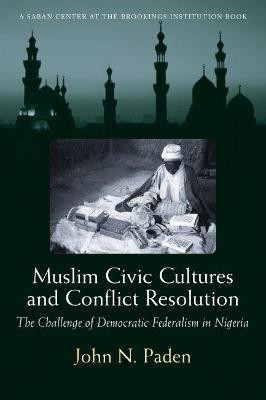Muslim Civic Cultures and Conflict Resolution(English, Paperback, Paden John N.)
Quick Overview
Product Price Comparison
" The question of whether Islam is compatible with democracy may best be answered not from the classical sources or even from the cauldron of Middle East politics but from the lived experiences of Muslim communities around the world. In large and diverse countries, the varied political values of different cultures can make or break the democratic experiment. Regardless of their cultural context, transitions from military to civilian rule require attention to the grassroots civic cultures that form the foundations of democratic federalism. John Paden, a noted expert on West African and Islamic societies, uses Nigeria as a critical case study of how a diverse country with a significant Muslim population is working to make the transition to a democratic society. Although little-studied, the non-Arab Muslim communities of West Africa are an important indicator as to whether Islamic democracy in a diverse nation is possible. Nigeria's success is vital to regional and global stability. As the largest country in Africa, with a population that is about half Muslim and half Christian or traditional animist, Nigeria is also the seventh largest producer of oil in the world and has gone through a series of political traumas ranging from civil war to military rule. The current democratic government is trying to balance rule-of-law concerns at a time when many communal tensions are coming to the surface. Muslim Civic Cultures and Conflict Resolution in Nigeria takes us inside the complex world of Nigerian politics, with a focus on the ways Muslim civic cultures deal with matters of leadership and conflict resolution. The book provides an essential context to the current international concern with issues ranging from Shari'a law and communal violence, to the broader war on terrorism. It argues that the requirement for regional political cooperation serves as a counterbalance to more extreme forms of political expression. Paden shows that if the Nigerian political model of democratic federalism works, then there is a real world, peaceful alternative to the ""clash of civilizations"" predicted by the intellectual world and threatened by al Qaeda."


